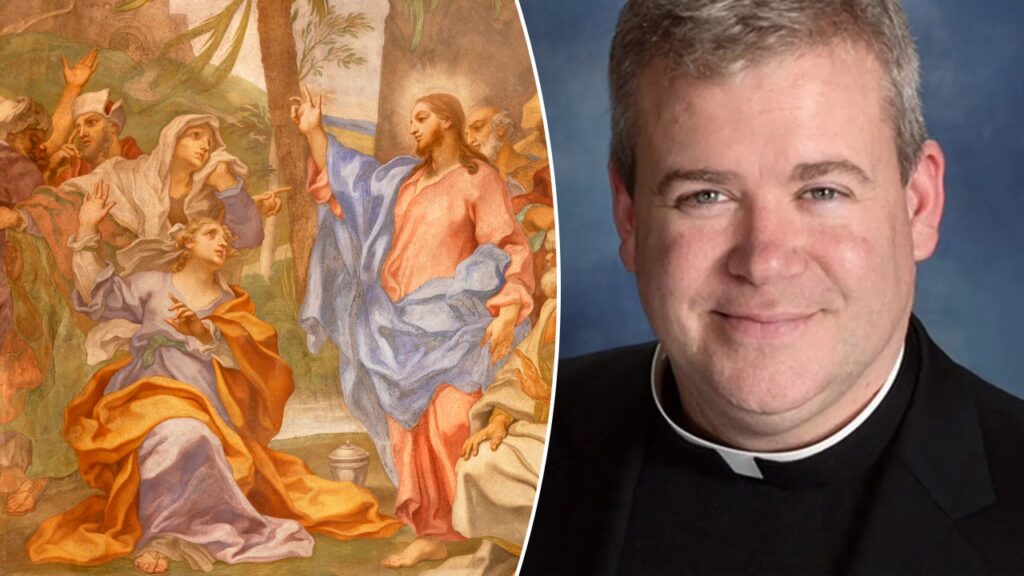The account of Jesus visiting the home of Martha and Mary, as recorded in Luke 10:38-42, offers a profound reflection on priorities in our spiritual lives, along with insights into human behavior and relationships. This narrative depicts a seemingly ordinary scene that reveals deeper truths about faith and distraction. Martha, the elder sister, welcomed Jesus into her home, a gesture reflecting hospitality and devotion. However, this encounter soon became a lesson on the importance of focus and the choice between worldly concerns and spiritual nourishment.
Martha’s role in the story is that of a diligent hostess, actively engaging in preparations to welcome her revered guest. She becomes overwhelmed with tasks and responsibilities, which ultimately lead to frustration. Martha’s decision to approach Jesus with a complaint about her sister Mary is telling. Rather than seeking a private conversation with Mary or asking for her assistance in a cooperative manner, Martha publicly admonishes her sister, accusing her of laziness. This approach highlights the dynamics of sibling rivalry and the pressures of social expectations, suggesting that Martha felt a burden to fulfill her role as hostess perfectly.
Father Jeffrey Kirby, a pastor from South Carolina, provides an insightful analysis of this Biblical episode. He emphasizes that Saint Luke’s unique perspective as the only Gentile author in the New Testament adds depth to the narratives he presents, including that of Martha and Mary. Kirby notes that while Martha is attending to external duties, Mary chooses to sit at the feet of Jesus, listening attentively to His teachings. This choice emphasizes the spiritual over the mundane, leading Jesus to affirm Mary’s decision as the “better part,” which would not be taken from her.
The conversation between Jesus and Martha represents a broader theme found throughout the Scriptures: the rejection of pride, even in individuals who may be technically correct. Martha’s frustration stems from her pride and perceived burden, which clouds her judgment. Jesus’s response—”Martha, Martha, you are anxious and troubled about many things; one thing is needful”—invites her to reconsider her priorities. This rebuke encourages Martha not only to reassess her actions but also to recognize the value of spiritual communion over mere obligation.
Kirby points out that Martha’s efforts to “throw her sister under the bus” demonstrate not only her frustration but also a lack of humility. By directing her complaint toward Jesus, Martha inadvertently undermines both her relationship with Mary and the spirit of hospitality she aims to embody. The irony is stark: while Martha is rightly concerned about hosting Jesus, she misses the gift of His presence in her own home by allowing her worries to dominate her mindset.
In stark contrast, Mary embodies a different approach to their visitor. She recognizes the preciousness of Jesus’s presence and prioritizes spiritual connection over domestic duties. Mary’s choice to engage with Jesus illustrates an understanding that transcends immediate responsibilities. She prioritizes listening and learning from Him, an act that Jesus affirms as the ultimate good.
Kirby reflects on how this encounter speaks to the modern experience of busyness and distraction. He advises that, as individuals navigate the demands of life, it is essential to pause, refocus, and find moments to engage with the divine. The message is clear: amid life’s chaos, taking the time to “sit with” Jesus and draw spiritual nourishment is paramount.
In summation, the story of Martha and Mary serves as a powerful reminder of the balance required in our lives between doing and being. It teaches that while responsibilities are important, they should not eclipse the opportunity for spiritual growth and connection. This narrative invites individuals to reflect on their priorities and encourages a greater appreciation for the moments spent in the presence of the divine.



